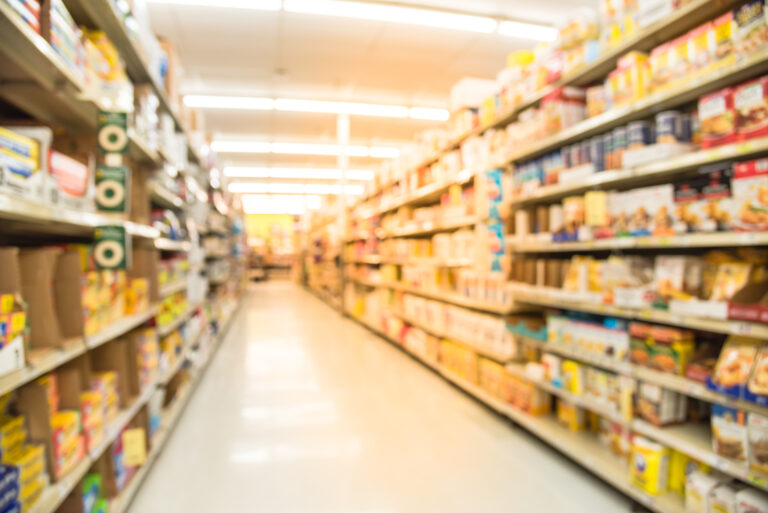NASSAU, BAHAMAS — The Bahamas government faces the “unenviable balancing act” to ensure that its efforts towards ensuring food security do not jeopardize its need for fiscal discipline, according to an Inter-American Development Bank Report.
The report assessing the headwinds facing the post-pandemic recovery stated that cost of living increases will disproportionately impact the most vulnerable in the country.
The report also noted that the government’s price control adjustments are likely to impact small and medium-sized enterprises “negatively and disproportionately.”
The IDB in its assessment of The Bahamas in its Caribbean regional quarterly bulletin noted that The Bahamas is still recovering from the effects of the COVID-19 pandemic, with its economy projected to grow by an additional eight percent in 2022. The report further noted that the country’s twin deficits continue to be pressing issues, despite improvements with the current account deficit is projected to improve slightly to 18.2 percent of GDP in 2022, from 23.1 percent the year prior. However, that is still significantly above the 2.6 percent deficit of 2019.
“Inflation and the broad global economic slowdown represent headwinds to the recovery in The Bahamas. The Russian invasion of Ukraine is a shock that has reverberated globally, particularly in the commodities markets. Like most small island developing states, The Bahamas is a net food and fuel importer and, thus, has acutely felt the impacts of sharp commodity price shocks,” the report noted.
The report noted that for Bahamians, particularly the most vulnerable, the most pressing issue is likely the increasing cost of living, as reflected by food inflation.
“The Bahamas has a one-to-one currency peg against the US dollar that mitigates against inflation pass-through from exchange rate depreciation. Nonetheless, as of August 2022, headline inflation was 6.4 percent year-over-year, while food and transport prices grew by 14.3 percent and 23.8 percent, respectively, over the same period,” the report stated.
“Furthermore, Bahamas Power and Light announced in early October that the monthly fuel charge will increase progressively by two cents per kWh if consumption is less than 800 kWh and 4.3 cents per kWh otherwise, in four phases until August 31, 2023.”
The IDB noted that taken together, these increases in food, transportation, and electricity prices will disproportionately impact the most vulnerable given the weight of such items in their consumption basket.
“To address high inflation, particularly for food, the Bahamian government has responded with a combination of temporary and permanent policies,” it continued.
“These policies include an increase in the minimum wage for all workers, an increase in the value-added tax (VAT) exemption threshold, import tariff exemptions, and the expansion of price controls for a list of key breadbasket items and medicines. The increase in the minimum wage is the first since 2015 and is more targeted than the other policies, so it will benefit the lowest-earning workers in the formal labor market,” the report noted.
Commenting on the government’s price control amendments, the IDB noted that price controls do not differentiate using size or profitability.
“Therefore, this policy is likely to impact small and medium-sized enterprises negatively and disproportionately because they are more likely to have neither the volume of sales nor the economies of scale to absorb the per unit loss of revenue. In addition, they will have to use these same diminished margins to cover increasing electricity bills and labor costs.
“Furthermore, like price controls, the VAT exemption for electricity bills – and even more so the import tariff reductions and exemptions – would result in government revenues transferred to Bahamians, including those who are least affected by inflation. Hence, except for the minimum wage, the remaining policies outlined are effectively untargeted subsidies for everyone–both the rich and the poor. That said, as a short-term temporary measure, the price controls have the advantage of not imposing any direct expenditure costs on the budget.”
The IDB recommended that unlike price controls, which are “blunt policy tools,” a more targeted response – such as a conditional or unconditional cash transfer – could build on existing programs such as emergency food assistance that provides food stamps to qualifying families.
It read: “Beneficiaries of this policy would be Bahamians who earn less than a pre-defined income threshold – low enough to ensure that only the most vulnerable qualify but high enough that it does not distort incentives for those earning close to the minimum wage. Beyond targeting food insecurity, well-designed and innovative cash transfers could have other beneficial secondary effects.”
The IDB concluded that the Bahamas is expected to have a robust economic recovery as tourism activity progressively returns to pre-pandemic levels.
“However, broad macroeconomic challenges, driven primarily by external shocks, will continue to present risks in the short to medium term. The government faces an unenviable balancing act to ensure that its pursuit of food security does not jeopardize its need for fiscal discipline,” the report stated.
“The government’s tight fiscal space – both high debt and persistent fiscal deficits – will constrain its policy options and thus underscore the need for targeted and consensus-driven responses to mitigate the inflationary impact, particularly for the most vulnerable.”





